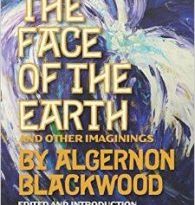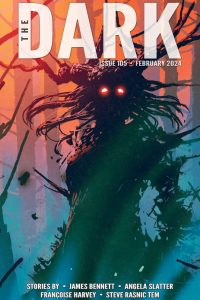Jamaica Ginger and Other Concoctions by Nalo Hopkinson: Review by Gary K. Wolfe
 Jamaica Ginger and Other Concoctions, Nalo Hopkinson (Tachyon 978-1-61696-426-9, $15.95, 224pp, tp) October 2024.
Jamaica Ginger and Other Concoctions, Nalo Hopkinson (Tachyon 978-1-61696-426-9, $15.95, 224pp, tp) October 2024.
Story collections almost never sell as well as novels, but maybe they ought to. A novel is the end product of processes that may have unfolded over months or years, while a collection offers us glimpses into those processes themselves. All of the sixteen stories in Nalo Hopkinson’s Jamaica Ginger and Other Concoctions were published while Hopkinson was working on her major new novel Blackheart Man (reviewed here in July), and while none of them are directly related to that novel, they reveal aspects of her imagination, techniques, and preoccupations in a way that can’t always comfortably be packed into a tightly plotted and thematically unified tale (as Blackheart Man is). For example, in the introduction to her Sturgeon Award-winning story ‘‘Broad Dutty Water: A Sunken Tale’’, Hopkinson recalls how, in a conversation with fellow Caribbean author Karen Lord, ‘‘we both found ourselves preoccupied with ocean level rise.’’ It’s an unarguably reasonable and even critical preoccupation, and indeed it shows up not only in that tale – set in a flooded future world, but also involving brain implants, ultralight aircraft, and an electronically modified pig, somehow all made strangely delightful – but in ‘‘Inselberg’’, a darkly witty monologue in the voice of a tour guide leading cruises over the ruins of her drowned homeland, and ‘‘Repatriation’’, in which a cruise on a mysteriously run-down ship resolves into a serious consideration of an actual project to rebuild coral reefs.
But while we might expect such environmental concerns from Hopkinson, one of the other advantages of a collection is discovering what fascinates an author in purely aesthetic terms, and another theme that characterizes Jamaica Ginger is, in fact, art itself, and the ways in which art forms dialogue with each other. Three of the shortest stories were written as direct responses to other artworks: ‘‘And More Slow’’, which turns a huge art installation into a meditation on an alien artifact; ‘‘Covenant’’, drawn from another installation echoing the idea of a world-city megastructure, but focusing on a whimsical myth of origin involving potatoes and dragons, of all things; and ‘‘Pocket Universe’’, a surprisingly moving flash piece involving a dying woman imaginatively growing her last house. Another story, ‘‘Clap Back’’, satirizes both privileged artists who co-opt the work of the less fortunate, in this case involving a ‘‘Forgiveness Quilt’’ that embeds stories from cultures that the trendy designer can’t even keep straight, and, more pointedly, the long tradition of demeaning racist stereotypes in ceramic figurines and ashtrays. Both of the SFnal conceits in the story seem a bit farfetched, but the anger cuts exactly as sharply as it’s meant to.
As wildly imaginative as Hopkinson’s approach in these stories may be, she also ventures confidently into some more familiar forms. The title story, ‘‘Jamaica Ginger’’, is a collaboration with Nisi Shawl (who also provides an insightful and appreciative introduction), which takes us into steampunk territory in a Tesla-era New Orleans, as a young woman juggles the challenges of caretaking her sick father (disabled by the poisonous Depression-era tonic of the title) with her job of assisting an eccentric scientist who is intent on designing a mechanical man to replace Pullman porters – while she also teaches herself to program a robot storyteller with tales by ‘‘authors’’ whose names are all anagrams of Samuel R. Delany (the story is from Shawl’s and Bill Campbell’s Delany tribute anthology Stories for Chip). It’s the most complex tale in the book, and one of the most rewarding. Folklore-based fantasy underlies the haunting ‘‘Child Moon’’, in which a mother undertakes a dangerous quest and ends up exchanging her baby with one from a strange goat-woman. The very short and very chilling ‘‘Waving at Trains’’ gives us a taste of postapocalyptic horror, as two friends negotiate a dying landscape filled with corpses. And Hopkinson even gives metafiction a whirl with ‘‘Propagation: A Short Story’’, apparently written as a performance piece for a conference, and which she almost apologizes for, claiming ‘‘it doesn’t gel’’ simply as words on a page. I’ve seen Hopkinson perform, and I have no doubt that her reading of it was brilliant, but she doesn’t give herself enough credit. It begins with a narrative in her now-familiar Caribbean-tinged storytelling patois, describing an apparently inexplicable blizzard of popcorn, then starts to offer an SFnal rationale involving 3D printing – and suddenly interrupts itself with the author telling us that the science is basically bogus, shifting the mode into a half-essay/half-story about the importance of SFnal dreams to the historically disenfranchised. It’s actually something of a wonder, and defines as sharply as anything else in the collection exactly why Hopkinson’s imagination is both unique and singularly important.
Interested in this title? Your purchase through the links below brings us a small amount of affiliate income and helps us keep doing all the reviews you love to read!
Gary K. Wolfe is Emeritus Professor of Humanities at Roosevelt University and a reviewer for Locus magazine since 1991. His reviews have been collected in Soundings (BSFA Award 2006; Hugo nominee), Bearings (Hugo nominee 2011), and Sightings (2011), and his Evaporating Genres: Essays on Fantastic Literature (Wesleyan) received the Locus Award in 2012. Earlier books include The Known and the Unknown: The Iconography of Science Fiction (Eaton Award, 1981), Harlan Ellison: The Edge of Forever (with Ellen Weil, 2002), and David Lindsay (1982). For the Library of America, he edited American Science Fiction: Nine Classic Novels of the 1950s in 2012, and a similar set for the 1960s. He has received the Pilgrim Award from the Science Fiction Research Association, the Distinguished Scholarship Award from the International Association for the Fantastic in the Arts, and a Special World Fantasy Award for criticism. His 24-lecture series How Great Science Fiction Works appeared from The Great Courses in 2016. He has received six Hugo nominations, two for his reviews collections and four for The Coode Street Podcast, which he has co-hosted with Jonathan Strahan for more than 300 episodes. He lives in Chicago.
This review and more like it in the October 2024 issue of Locus.
 While you are here, please take a moment to support Locus with a one-time or recurring donation. We rely on reader donations to keep the magazine and site going, and would like to keep the site paywall free, but WE NEED YOUR FINANCIAL SUPPORT to continue quality coverage of the science fiction and fantasy field.
While you are here, please take a moment to support Locus with a one-time or recurring donation. We rely on reader donations to keep the magazine and site going, and would like to keep the site paywall free, but WE NEED YOUR FINANCIAL SUPPORT to continue quality coverage of the science fiction and fantasy field.
©Locus Magazine. Copyrighted material may not be republished without permission of LSFF.








